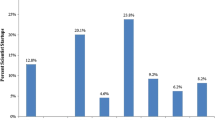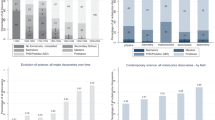Abstract
Many scientists were respected by people and science has made great development in the twentieth century. What role do scientists play in the process of scientific development? Does scientific development bring more researchers into scientists? This paper mainly analyzes the two interested questions and suggests that: (a) not all researchers’ output could be attributed to scientific knowledge, only the innovative output could promote science to develop. Scientists play a more significant role than the rest researchers in scientific development in average because scientists’ innovative consciousness is far higher than that of non-scientists. (b) Distinguishing scientists from researchers in accordance with the fixed basic contribution of innovative output in the process of scientific development. Researchers’ innovative work becomes easier with the accumulated scientific knowledge growing gradually in the initial stage of scientific development. Thus, scientific development could produce more and more scientists. On the contrary, researchers’ innovative work becomes more challenged with the accumulated scientific knowledge increasing gradually while science develops to a certain stage. As a result, scientific development would make researchers become scientist increasingly difficult.
Similar content being viewed by others
Notes
Statistics calculated according to 2011 SCI and EI indexed papers of authors’ units.
References
Adam, J. (1998). Benchmarking International Research. Nature, 396(6712), 615–618.
Garfield, E. (1955). Citation Indexes to Sciences: A New Dimension in Documentation Through Association of Ideas. Science, 122(3159), 108–111.
Golub, B. (2002). Motivational factors in departure of young scientists from Croatian science. Scientometrics, 53(3), 429–445.
Prpić, K. (1998). Science Ethics: A Study of Eminent Scientists’ Professional Values. Scientometrics, 43(2), 269–298.
Small, H., Kushmerick, A., & Benson, D. (2008). Scientists’ perceptions of the social and political implications of their research. Scientometrics, 74(2), 207–221.
Swinbanks, D., Nathan, R., & Triendl, R. (1997). Western Research Assessment Meets Asian Cultures. Nature, 389(6647), 113–117.
Wang, X., Xu, S., Peng, L., Wang, Z., Wang, C., & Zhang, C. (2012). Exploring Scientists’ Working Timetable: Do Scientists Often Work Overtime? Journal of Informatics, 6(4), 655–660.
Zhang, L., Zhao, H., Li, Q., Wang, J., & Tan, X. (2010). Establishment of paper assessment system based on academic disciplinary benchmarks. Scientometrics, 84(2), 421–429.
Acknowledgments
The authors thanks for support through the National Natural Science Foundation of China (Key Program) grant No.71033002; and the National Natural Science Foundation of China grant No. 71173026.
Author information
Authors and Affiliations
Corresponding author
Rights and permissions
About this article
Cite this article
Tang, E., Liu, F., Sun, J. et al. The relationship between scientists and science: knowledge-based innovation output. Scientometrics 98, 1827–1835 (2014). https://doi.org/10.1007/s11192-013-1138-x
Received:
Published:
Issue Date:
DOI: https://doi.org/10.1007/s11192-013-1138-x




